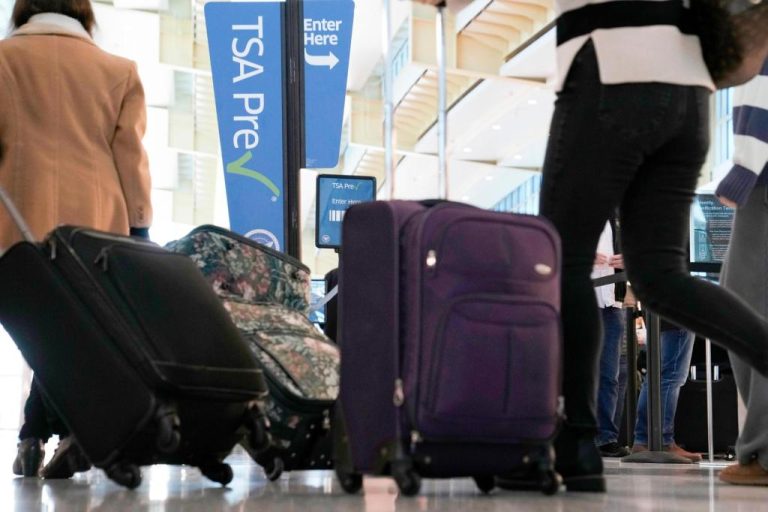
Southwestern College students Alejandro Banda and Deante Bailey know the drill by now — wake up early, check border crossing wait times and stand in line in hopes of being on time for school. But for the first time, at least for one class, they get to skip the tedious routine.
The Chula Vista-based college recently began offering a business class at CETYS University in Tijuana for students like Banda and Bailey living south of the border. The pilot program comes after a memorandum of understanding was signed earlier this year between the two schools.
“It’s convenient,” said Banda before his Wednesday class. “It’s not much of a headache to try to go across the border and come back.”
It’s hard to track the number of cross-border students in the region. Southwestern College officials estimate that at least 1,500 of their students live in Mexico. But that number could be much higher as students are sometimes reluctant to share that information, said Joel Pilco, director of binational and international programs at Southwestern College.
The first-of-its-kind program aims to encourage “the students we share,” and those who face the daily challenge of crossing the border, said Karina Parra, director of CETYS’ Business and Administration School in Tijuana.

“These long lines or the complexity of mobility in our cities can force them to even drop some of their classes and the idea is to provide them with the facilities to continue their studies,” she said.
Traffic at crossings at the California-Mexico border has increased each year since 2021, according to data from U.S. Customs and Border Protection. Northbound border crossings for all California land ports of entry average 200,000 per day.
Both educational institutions are currently looking for more ways for the schools to work together. “We have different education systems,” Parra noted. “We need to find the similarities and work on the differences.”
For now, the class is only available to Southwestern College students living in Mexico, but the idea is to eventually open it up to CETYS students as well, said Silvia Cornejo, dean of Higher Education Centers at Otay Mesa and San Ysidro, and the liaison for Southwestern College in their partnership with CETYS.
In addition, CETYS could offer a way for Southwestern students to take some of its classes.
For its international business programs, Southwestern offers an associate’s degree, while CETYS offers a bachelor’s degree.
“It’s very early in the partnership,” Cornejo said. “But the vision is to do as much as we can to support students on both sides of the border to pursue an education potentially taking classes from both institutions.”

The Principles of Money Management course is offered once a week in person at the Tijuana campus, with the remainder of the course offered online. The class currently has 17 students.
Professor Frank Paiano has been teaching at Southwestern College for decades. He recalls the many times over the years that his students who live in Mexico have emailed him to let him know that they will not make it in time because of the long lines.
“Our job is to serve the students,” he said. “And if we can make their life easier, that’s what we should do.”
On Wednesday evening, a group attended Paiano’s class for a chapter on life insurance, while another student followed along online. The course is taught in English.
Southwestern College officials said there are plans to add more classes to the program.
The partnership also coincides with the implementation of a state law that allows low-income students living in Mexico to pay in-state tuition at community colleges in San Diego and Imperial counties, including Southwestern College. The five-year program will benefit those who live within 45 miles of the California-Mexico border.

Many students choose to live in Mexico due to the high cost of rent across the border. “It’s more economical for the pocket,” Banda said about living in Tijuana. “The U.S. it’s becoming horrible to rent,” he added.
Bailey, his longtime friend and classmate, agreed. Both of them moved from Los Angeles to Tijuana. “It’s easier to go to school in San Diego and just cross the border than it is to live over there and pay for rent, electricity and everything.”
Banda estimated that for a 1 p.m. class, he usually lines up at 9 a.m. to make sure he is on time. He said he has already applied for the trusted traveler program Global Entry but is still waiting for approval.
Southwestern student Genevieve Villarreal first enrolled when she was still living in Tijuana but said she recently moved to Chula Vista.
Still, she stayed in the class and said she was drawn to it because it was the first of its kind. “I understand that this is a border town, so I feel like any kind of thing like this is something we should be interested in,” she said.






